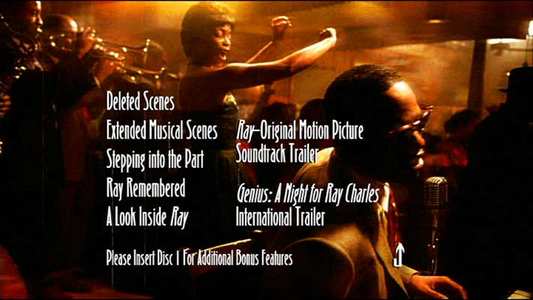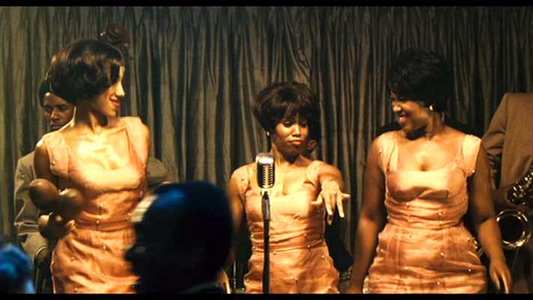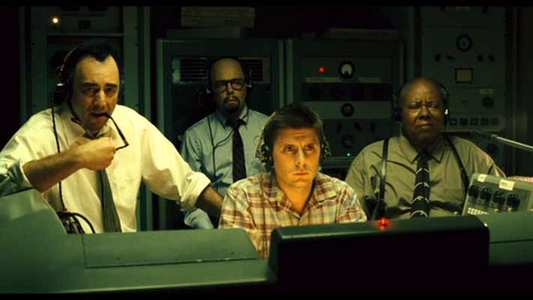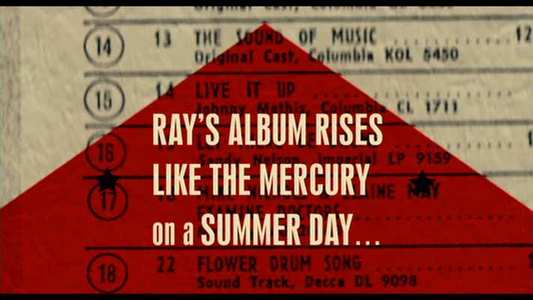Review of Ray
Introduction
I`m not usually one to get carried away with a movie, but then I`ve always believed that when a man`s gotta gush, a man`s gotta gush.
Ray is a positively incandescent movie.
I`ll admit here and now that I`m a sucker for a good biopic, and this is one of the best. Ray Charles Robinson was a larger than life character and a towering musical talent, and this movie does his life story justice. It charts his hard upbringing as the blind son of a sharecropper, the sheer grind of his rise as a musical artist to the heights, and the cataclysmic fall from grace brought about by his heroin addiction. The picture doesn`t paint him as an angel. He could be a complete rat-bag when he wanted to, especially towards his family, friends and his mistresses. But then again much of the time he was surrounded by people who were either (quite frankly) too good for him, or complete scumbags themselves. Considering what he faced through his life - a poor upbringing, the onset of blindness, and the prejudices against him in mid-twentieth-century America as both black and blind, the only way he could survive was by not being an angel.
Sent off to a school for the blind by his sharecropper mother, he promises her nobody will make him a cripple, and everything he does lives up to that promise - until he makes himself a cripple through his use of heroin. The movie does not shy away from Ray`s long-term addiction, which earns him jail time and a traumatic spell in rehabilitation (before it was fashionable) where he goes through the agonies of full cold turkey withdrawal.
During his life, Ray was haunted by nightmares - some of them waking nightmares - of water and the lifeless body of his little brother George who drowned in their mother`s washtub. These visions - his personal demons - ultimately prove to be part of his salvation from drugs. He was clean for the rest of his life.
Jamie Foxx stars as Ray in a completely convincing performance that sometimes makes you double-take that you`re not watching Ray himself. The rest of the cast is made up of similarly little- or un-known names. Kerry Washington puts in a fiery but sympathetic performance as Ray`s wife Della Bea, while Regina King goes from golddigger to victim as Ray`s tragic mistress Margie Hendricks. In flashback, CJ Sanders puts in a heartbreaking performance as Ray`s seven-year-old self, having to come to terms with the death of his little brother and his own impending blindness. In the supporting cast is a virtually unrecognisable Curtis Armstrong (of Moonlighting and the Revenge Of The Nerds movies fame), as Ray`s producer at Atlantic Records Ahmet Ertegun.
Produced, co-written and directed by Taylor Hackford, the movie is a labour of love. Hackford secured the rights to the story in 1987, but could never get studio finance. Making the movie independently, he only secured distribution from Universal because one of the studio execs was a Ray Charles fan. It took half it`s $40m budget in US Box Office sales on its opening weekend. The movie won both 2005 Academy Awards and BAFTAs for Sound and Best Actor, and Oscar nominations for Costume Design, Editing, Direction and Best Picture.
Ray lived long enough to approve a first edit of the picture before his death from liver failure in 2004. The credits read that he was survived by 12 children, 21 grandchildren and five great-grandchildren.

Video
This is nothing short of sensational, and I`d consider describing as reference-quality. The movie is transferred spotlessly in anamorphic widescreen 1.85:1, with excellent contrast and fine detail that shows off the decent bitrate used. The digitally graded colours are strong and often hyper-real, particularly the footage of Ray`s childhood.
Period detail in the movie is magnificent, if not slavishly accurate (a number of anachronisms have been pointed out). The use of some stock footage is integrated into the movie without apology and adds to the 1950s and 1960s feel of the movie.

Audio
The soundtrack is an all immersive Dolby Digital 5.1 mix that showcases Ray`s music without turning the enterprise into a musical.

Features
Disc One features both the theatrical cut of the movie and a branched extended edition. There is an audio commentary by the director and an audio descriptive track for partially-sighted viewers (a nice touch). The movie is subtitled throughout for HOH viewers as well.
Disc Two contains the extras, presented in 4:3 or letterbox - two extended musical scenes; a featurette about Jamie Foxx taking on the role called "Stepping Into The Part"; another short featurette called "Ray Remembered" and a slew of deleted scenes which can be watched with or without a commentary track from the director. There are also trailers for the soundtrack CD and the DVD of the Ray tribute Genius.

Conclusion
If anybody thought "they don`t make `em like that any more" about Hollywood biopics, they`re happily mistaken. "Ray" is a warts-and-all biopic of a truly legendary 20th Century musical icon, told with 21st Century frankness and technical elan.
I felt privileged to have watched this picture, and I think it deserved more than the two Oscars it picked up. Nobody acquits themselves less than brilliantly in this movie, and it will leave you feeling spiritually uplifted in spite of its frequently hard-hitting imagery.
If you are sensitive about drugs-related issues you may want to think twice about this movie, but if like me you find the indefatigability of the human spirit a cause for celebration, you`ll rush out and buy it.
Your Opinions and Comments
Be the first to post a comment!